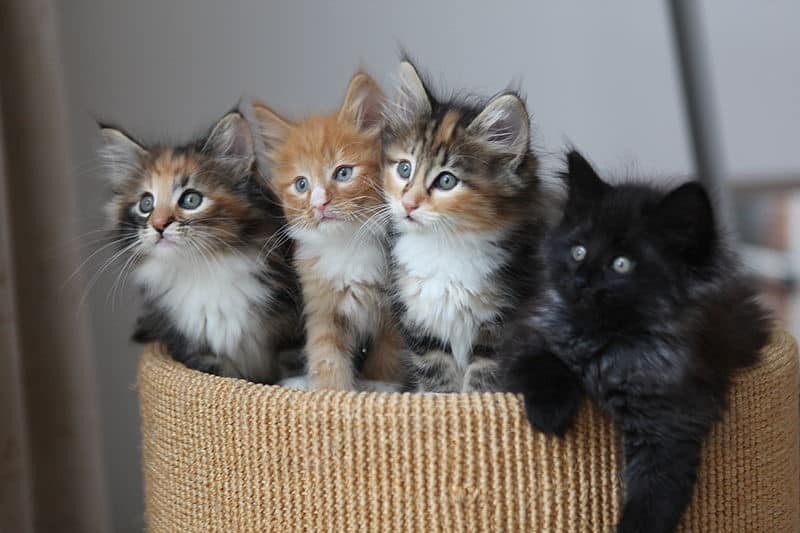In a case that bridges the worlds of intellectual property (in this case, trade secrets) and blockchain, a California federal court has denied a motion for a preliminary injunction against the developer of the CryptoKitties game.
CryptoKitties uses the Ethereum blockchain technology to allow users to “securely buy, sell, trade, and breed genetically unique virtual cats.”
The Plaintiff, Founder Starcoin, is a San Diego company that focuses on the “cryptocollectibles” market.
As the court noted, “Cryptocollectibles are unique, digital assets created using blockchain technology.”
The defendant, Launch Labs (doing business as Axiom Zen) is a Canadian company that also does business in the cryptocollectible market.
Having developed CryptoKitties, Axiom pursued the idea of developing Kitties that looked like celebrities, in association with those celebrities.
As Axiom’s product manager said on Vice.com in October,
Kitties should be a part of this revolution of bringing blockchain technology to the masses . . . So many great companies are building awesome technology that the world won’t care about or understand. We’re the flag bearer for the rest of this ecosystem in terms of getting celebrities to associate with kitties and the Ethereum network.
Defendant then embarked on licensing discussions with celebrities.
After CryptoKitties launched in November of 2017, within a month about 180,000 people signed up to play, bringing in $20 million in revenue.
Axiom spun off the CyptoKitties business into a new company, Dapper Labs.
In February of 2018, Plaintiff’s CEO, Jeven Feinblatt, emailed an Axiom employee in search of a business partnership.
Jody Rebak, Axiom’s chief of staff, asked for more information.
Feinblatt then requested that the companies sign a mutual non-disclosure agreement (MNDA).
After the MNDA was signed, plaintiff sent Axiom a slide deck describing its method for celebrities to “commoditize themselves, fund their projects, and create a new type of asset via the first security complaint token platform for entertainers.”
In May, Dapper Labs released three “CurryKitties” based on NBA star Stephen Curry.
Plaintiff filed a complaint for trade secret misappropriation, along with a motion for a preliminary injunction.
Axiom argued that the alleged trade secrets were in the public domain. According to them, the alleged “secret” was nothing more than the idea of using celebrities to sell products.
In addition, the defendant noted that it had developed its celebrity product before the plaintiff had, and had announced its plans in public months before plaintiff shared its deck under the NDA.
The court agreed with the defendant, deciding that
Plaintiff’s purported trade secret suffers from a lack of “sufficient particularity” that might separate it from matters of general knowledge…. Thus, celebrity licensing cannot, by itself, be a trade secret.
The court denied the injunction.
The case is Founder Starcoin v. Launch Labs, Inc


